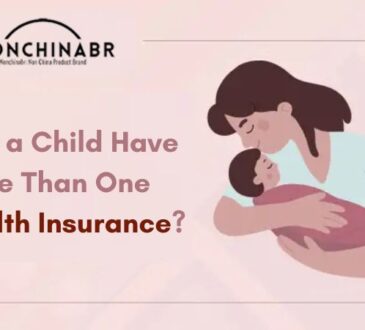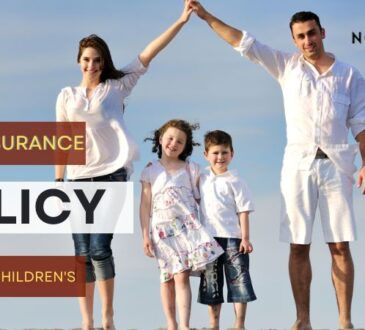Ensuring Health Equity: The Importance of Free Children’s Insurance Programs

In societies worldwide, the health and well-being of children are paramount. Recognizing this, governments have established various initiatives to ensure that children have access to essential healthcare services, regardless of their family’s financial circumstances. One such critical program is free children’s insurance. Let’s explore with Nonchinabr today.
The Role of Free Children’s Insurance Programs:
Free children’s insurance programs play a vital role in safeguarding the health of young individuals. These initiatives are designed to provide low-cost or no-cost health coverage to children from families facing financial hardships. By removing financial barriers to healthcare, these programs ensure that all children have access to preventive care, treatment for illnesses, and necessary medical interventions.

Bridging the Gap:
At the heart of numerous complimentary children’s insurance initiatives lies the objective of addressing the gap faced by families earning too much to qualify for Medicaid yet unable to afford private insurance. One such program, the Children’s Health Insurance Program (CHIP), stands as a crucial lifeline for millions of children across the United States, ensuring they have access to essential healthcare services despite their families’ financial constraints.
Comprehensive Coverage:
CHIP offers comprehensive coverage, including doctor visits, prescriptions, dental and vision care, immunizations, and emergency services, at little or no cost to eligible families. This coverage extends to millions of children, providing them with the necessary healthcare services to thrive.
Importance of Free Children’s Insurance:
The importance of complimentary children’s insurance programs cannot be emphasized enough. Families grappling with financial constraints often find themselves burdened with concerns about medical costs, which can be profoundly distressing. In the absence of insurance coverage, routine check-ups, vaccinations, and essential treatments may transform into unattainable luxuries. Consequently, children may be deprived of critical medical attention, potentially resulting in preventable health issues and exacerbating disparities in health outcomes among different socioeconomic groups.
Long-Term Benefits:
Moreover, the benefits of free children’s insurance extend beyond immediate health concerns. Access to healthcare from a young age sets the stage for a lifetime of wellness. Regular check-ups allow healthcare providers to monitor a child’s growth and development, identify any potential health issues early on, and provide timely interventions. This proactive approach not only improves individual health outcomes but also contributes to the overall well-being of communities.

Promoting Health Equity:
Moreover, complimentary children’s insurance initiatives play a pivotal role in fostering health equity, dismantling barriers rooted in financial disparities that impede access to essential healthcare services. Irrespective of a family’s economic standing, every child merits the chance to flourish and lead a healthy life. Through the provision of cost-free or subsidized insurance coverage, governments affirm the core tenet that healthcare is an inalienable right, accessible to all, irrespective of socioeconomic status. Such initiatives underscore the commitment to leveling the healthcare playing field, ensuring that no child is deprived of the care necessary for their well-being and future prosperity.
Societal Impact:
Beyond meeting immediate healthcare requirements, complimentary children’s insurance programs offer significant long-term societal advantages. The well-being of children is fundamental to their academic and social success. Timely access to medical care and interventions ensures regular school attendance, academic achievement, and participation in extracurricular pursuits. Consequently, children are empowered to realize their fullest potential and contribute meaningfully to society, laying the groundwork for a future generation equipped to navigate life’s challenges and make positive contributions to their communities.

Investment in the Future:
Moreover, investing in children’s health today yields significant cost savings in the future. Preventive healthcare measures, such as vaccinations and screenings, help mitigate the burden of chronic illnesses and reduce healthcare expenditures down the line. By promoting early intervention and disease prevention, free children’s insurance programs contribute to lower healthcare costs and a healthier population overall.
Challenges and Solutions:
While the advantages of complimentary children’s insurance programs are undeniable, achieving universal access to healthcare for all children presents ongoing challenges. These include constraints in funding, administrative intricacies, and eligibility criteria, which may impede some families from enrolling. Overcoming these hurdles demands a collaborative approach involving policymakers, healthcare providers, community organizations, and stakeholders. Governments must allocate sufficient funding and simplify enrollment procedures to effectively reach eligible families. Targeted outreach initiatives are essential to reach vulnerable populations, ensuring that every child has access to the healthcare services necessary for their well-being and development.
Conclusion:
In conclusion, free children’s insurance programs play a crucial role in promoting health equity and ensuring access to essential healthcare services for all children. By removing financial barriers to healthcare, these programs help safeguard the health and well-being of young individuals, promote long-term wellness, and contribute to healthier communities. As we strive to build a more equitable and inclusive society, investing in the health of our children is not only a moral imperative but also a wise investment in the future. By prioritizing free children’s insurance programs, we can create a healthier, more resilient future for generations to come.




